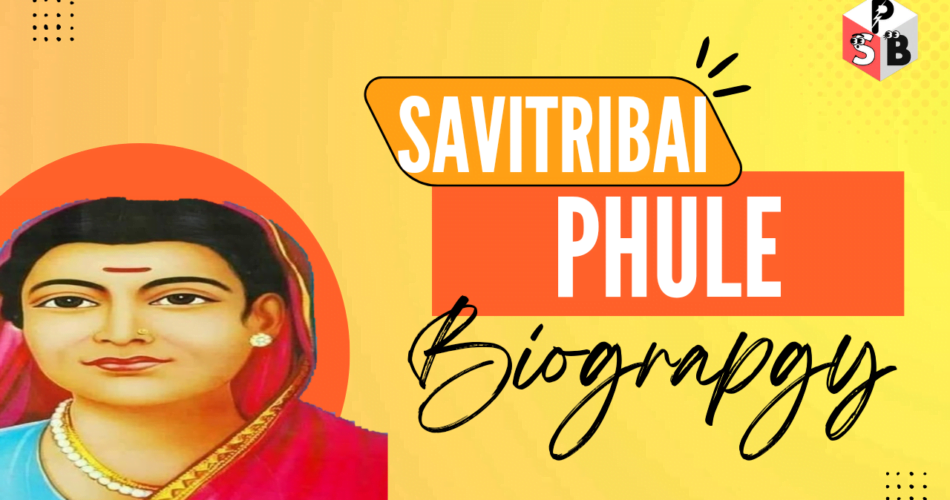Who was Savitribai Phule?
Savitribai Phule (1831-1897) was a pioneering social reformer and educator in India who is credited with being one of the country’s first feminists. Born into a poor family in Maharashtra, Phule was married at a young age and received little formal education. Despite this, she became a passionate advocate for the rights of women and lower castes, and worked tirelessly to improve their social and educational status.
Phule is best known for her work in the field of education. She was deeply concerned about the lack of educational opportunities for lower castes and women in India, and saw education as a means of empowering these groups and promoting social justice. To this end, she and her husband, the social reformer Jyotirao Phule, established the first school for girls in Pune in 1848. This school was the first of its kind in India, and was a major milestone in the country’s history.
Phule was also a vocal critic of the caste system and the oppression of lower castes in India. She argued that the caste system was a form of social injustice that perpetuated poverty and inequality, and she worked to promote the rights and dignity of lower castes. In addition to her work in education, Phule also established a home for widows and a shelter for orphans, both of which were designed to provide support and assistance to disadvantaged groups.
Phule’s work was not without controversy, and she faced significant opposition from traditionalist elements in society. Despite this, she remained committed to her ideals and continued to work for the betterment of women and lower castes throughout her life.
Phule’s contributions to social reform in India have been widely recognized, and she is remembered as a pioneer and a hero for her efforts to promote education, equality, and social justice in the country. Today, she is celebrated as one of the country’s greatest social reformers, and her work continues to inspire and influence people around the world
More about Savitri Bai Phule
Savitribai Phule was at the age of 9, when she was married to 13 year old Jyotirao Phule. Her husband educated her at home and trained her to become a teacher. Along with her husband, she opened 18 schools for girls, going on to become India’s first female teacher and headmistress.
Savitribai Phule had set up ‘Balhatya Pratibandhak Griha’ to prevent female infanticide and killing of widows and pregnant rape victims. She also set up ‘Satyashodhak Samaj’ along with her husband Jyotirao Phule which supported inter-caste marriages.
FAQ About Savitribai Phule
It is not clear who trained Savitribai Phule, as there is limited information available about her early life and education. Phule was born in 1831 into a poor family in the Indian state of Maharashtra, and she was married at a young age. She received little formal education, as education was not considered important for girls at that time.
Despite this lack of formal education, Phule became an influential and pioneering social reformer and educator in India. She is credited with being one of the country’s first feminists, and she is best known for her work in the field of education. Phule was deeply concerned about the lack of educational opportunities for lower castes and women in India, and she worked tirelessly to improve their social and educational status.
To this end, Phule and her husband, the social reformer Jyotirao Phule, established the first school for girls in Pune in 1848. This school was the first of its kind in India, and was a major milestone in the country’s history. Phule was also a vocal critic of the caste system and the oppression of lower castes in India, and she worked to promote the rights and dignity of these groups.
Overall, it seems likely that Phule’s dedication to social justice and her commitment to improving the lives of disadvantaged groups in India were the driving forces behind her work as a social reformer and educator. She was self-taught and self-motivated, and she used her own experiences and observations to guide her efforts to improve the lives of others.

